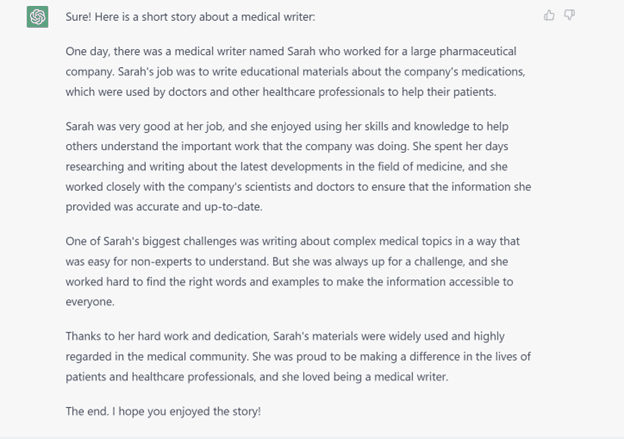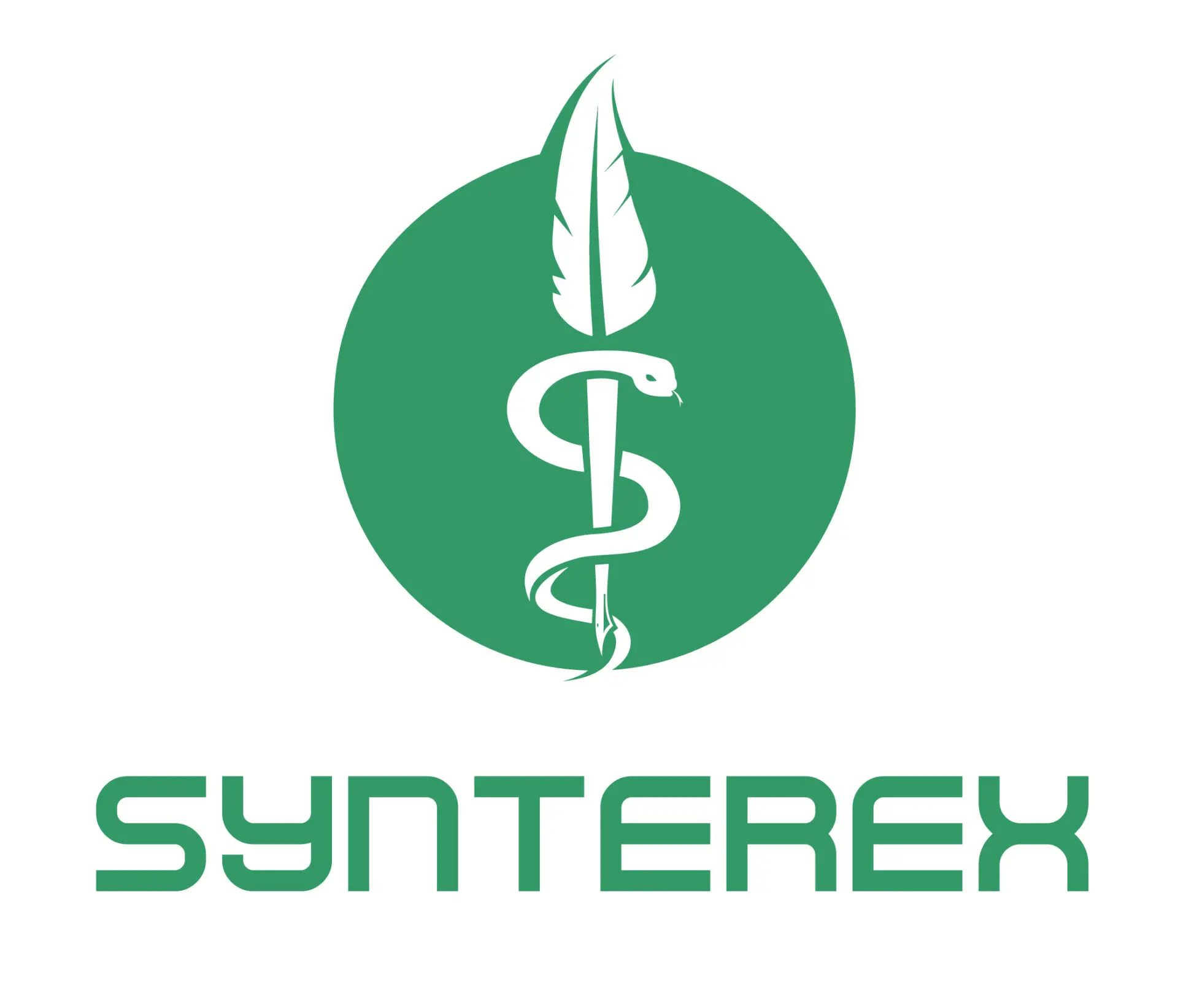We asked ChatGPT to tell us a story about a medical writer; here’s what it got right and what it got wrong.
Like many of you, when ChatGPT appeared in the news recently (mainly in reference to stories about students misusing the technology), I was curious. There have been many times in recent years when new technology has the potential to (or does) impact the medical writing field, and with the impending talk of Microsoft potentially incorporating the technology into Word, I figured I would check out what all the hype was about and share what else medical writers should know about the tool. So, I asked it to tell me a story about a medical writer. Here’s what it told me:

ChatGPT uses “large language model” technology, which means that it can learn how we think and speak.
One of the things I was most pleased with when I read the story ChatGPT generated was that it picked up on a core value of medical writers: helping patients, and helping them understand complex research topics by making information accessible. This is the crux of every medical writer’s story, including Sarah the medical writer.
The ChatGPT tool also did a good job of explaining how medical writers work closely with scientists and other experts, as well as the need for accuracy and staying current. Sarah sounds like a pretty good medical writer—I would hire her!
One other thing the tool got right is the hard work and dedication of medical writers. I’m glad there is enough publicly available information out there about how hard medical writers work such that the tool thinks the way we do about this career.
There is usually a process to have educational materials approved to be used for patient education, and rules about how those are funded, so this seems to be a gap in what ChatGPT came up with—or another page in the story of Sarah the medical writer in educating the stakeholders at the pharmaceutical company.
The other obvious gap is that this story is a rather rosy, one-sided depiction of the life of a medical writer and doesn’t cover some of the challenges a medical writer faces every day, including coordinating stakeholders with differing opinions, juggling competing priorities, and Microsoft Word melting down as you try to save your final draft. Anyone looking at this story considering entering the field would want additional sources to get a more balanced view of the job.
A final thing to consider about the technology is that it leverages publicly available information, which may include misinformation or propaganda, and it cannot interpret true from false or right from wrong. Therefore, anyone using it to get their thoughts flowing for scientific writing of any kind should use caution in thoroughly checking the end product as well as checking the sourcing (and the features to do the latter are still largely under development).
Will ChatGPT replace medical writers’ jobs? I doubt it, but it is a tool we should understand to see how it, or the technology behind it, could impact or interface with our daily work.
Sources:
Bloomberg. Sridhar Ramaswamy, Co-founder and CEO of Neeva [interview]. 12 Jan 2023. Available at: Concerns Around ChatGPT – Bing video
